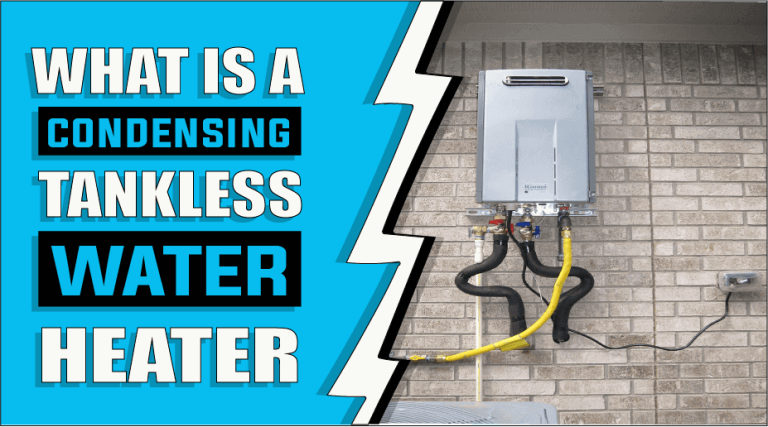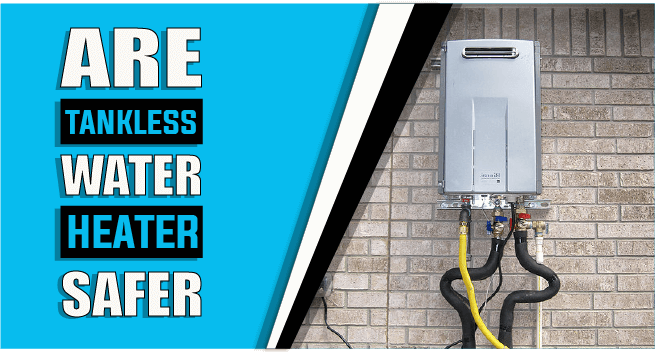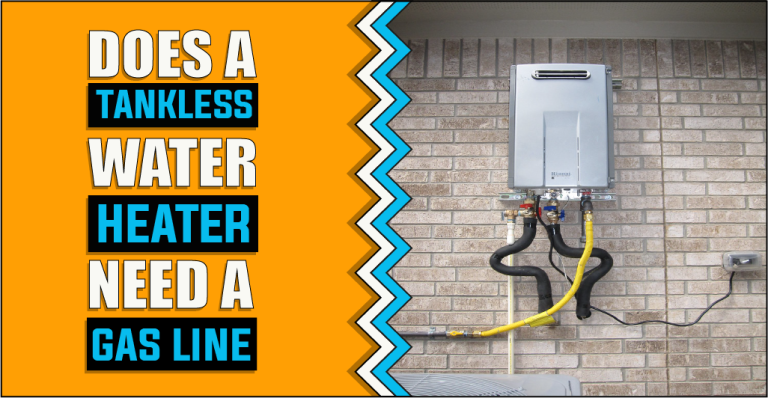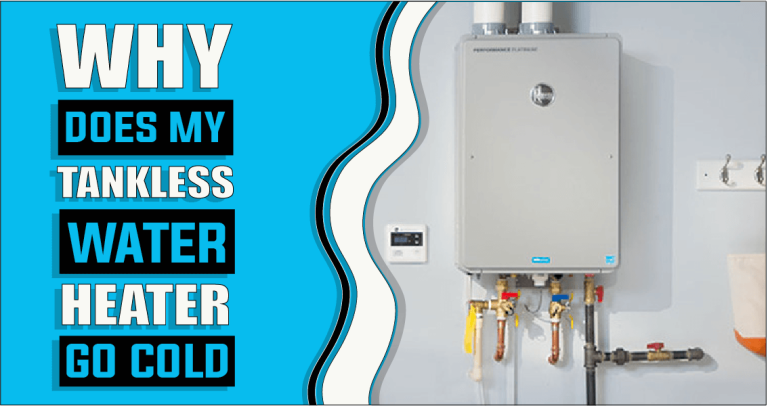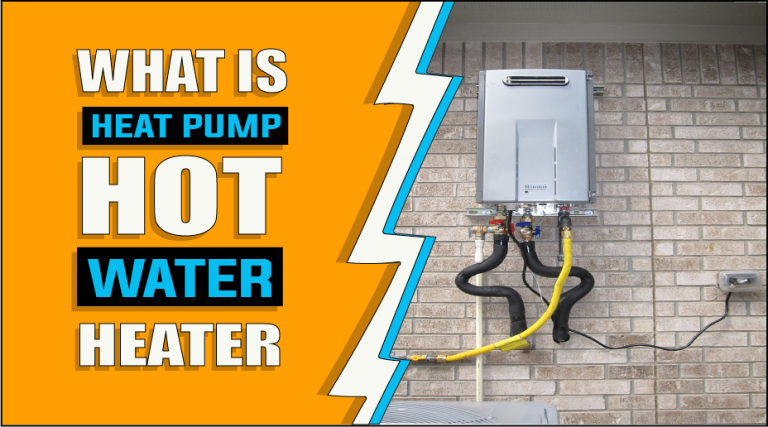How Much Does Hot Water Tank Cost | Unveiling The Price Point
Hot water tanks play a crucial role in our daily lives, providing us with the luxury of hot water for bathing, cleaning, and other household activities. When it comes to replacing or installing a new hot water tank, one of the first questions that comes to mind is, “How much does it cost?” The cost of a hot water tank can vary depending on several factors. Factors like the type of tank, fuel source, installation requirements, and location-specific variations all contribute to the overall cost. It is essential to understand these factors to make an informed decision and ensure that you get the best value for your investment. This guide will explore the average cost of hot water tank installation, including national averages and the range of costs you can expect. By the end of this guide, you will better understand the factors that impact the cost of a hot water tank and be equipped to make an informed decision based on your specific needs and budget. No more talk; let’s explore how much a hot water tank costs!
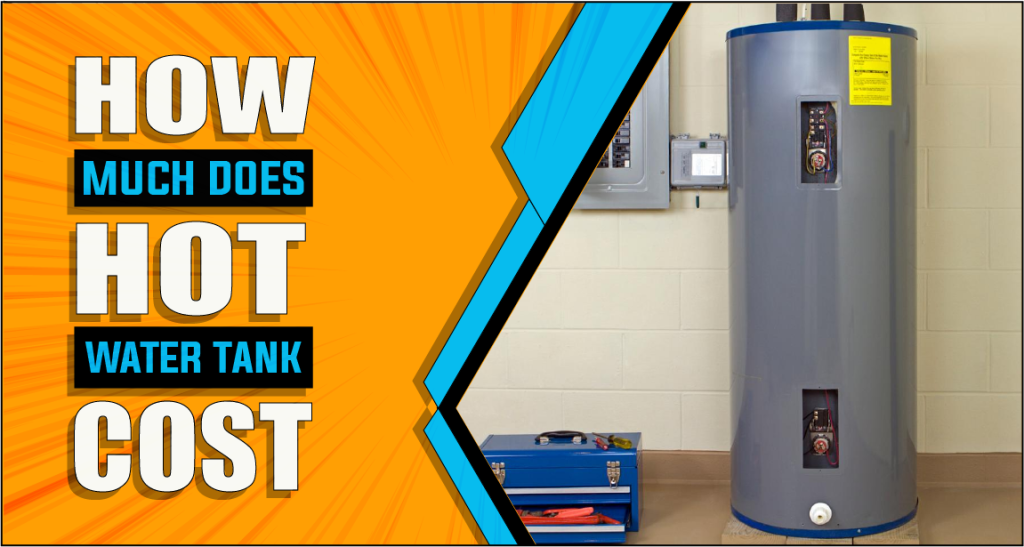
Average cost of hot water tank installation
Several factors must be considered regarding the average cost of hot water tank installation. According to my research, the cost can range between $900 and $5,000, depending on the tank type, fuel source, installation requirements, and location-specific variations.
The average cost for tank-style water heaters is between $900 and $2,500. On the other hand, tankless water heaters, which heat water on demand, can cost between $1,300 and $5,000 for installation. It’s important to note that natural gas water heaters have a slightly lower average cost, ranging from $700 to $2,700.
Remember that these figures are just averages, and the actual cost can vary based on the brand, size, and any additional repairs or requirements. It’s always a good idea to consult with professionals and gather multiple quotes to get a more accurate estimate for your needs.
Types of hot water tanks and their costs
Various types of hot water tanks are available on the market, each with unique features and costs. Understanding the different types can help you make an informed decision when selecting the right one for your needs. Here, we will discuss the most common types of hot water tanks and their associated costs.
1: Conventional Storage Tank Water Heaters –
These are the most common types of water heaters. They store and heat a large volume of water in a tank. Conventional storage tanks can range from $300 to $1,500, depending on the capacity and energy efficiency rating.
2: Tankless Water Heaters –
Also known as on-demand water heaters, these units heat water as it flows through the unit. They are more energy-efficient than storage tank heaters but usually cost more upfront. Tankless water heaters range from $700 to $3,000, depending on the brand, size, and fuel type.
3: Heat Pump Water Heaters –
These units extract heat from the air or ground to heat water. They are highly energy-efficient and can save on electricity costs in the long run. Depending on capacity and installation requirements, heat pump water heaters range from $1,000 to $3,500.
4: Solar Water Heaters –
Solar water heaters use energy from the sun to heat water. They have a higher upfront cost due to the additional components, such as solar panels and storage tanks. Solar water heaters can range from $2,000 to $10,000, depending on the system size and complexity.
5: Hybrid Water Heaters –
These units combine the benefits of a conventional storage tank heater with a heat pump. They are energy-efficient and can provide significant cost savings over time. Hybrid water heaters range from $1,200 to $3,500, depending on the brand and capacity.
When choosing a hot water tank, it’s important to consider upfront costs and long-term energy savings. Consulting with professionals and comparing different options will help you find the right balance between cost and efficiency for your needs.
Factors influencing the cost of hot water tank installation
Regarding hot water tank installation, several factors can influence the overall cost. Understanding these factors can help you budget and make informed decisions. Here are some key factors that can impact the cost of hot water tank installation:
1: Size and Capacity –
The size and capacity of a hot water tank are critical factors influencing its cost. The size is typically measured in gallons and directly affects how much hot water the tank can store. Here’s how these factors impact costs:
- Impact on Cost: Larger tanks with higher capacities generally cost more upfront than smaller ones. A 50-gallon tank will cost less than a 75-gallon or 100-gallon tank.
- Sizing Guidelines: Consider your household’s hot water usage patterns to choose the right size. Families with multiple members may require a larger tank to ensure an adequate supply, while smaller households can opt for smaller, more affordable tanks.
2: Fuel Source –
The fuel source for your hot water tank plays a significant role in determining its cost. The primary options include electric, gas, and propane:
- Electric: Electric hot water tanks are typically the most affordable upfront but may have higher operating costs due to electricity rates.
- Gas: Gas-powered tanks cost more upfront than electric ones but are often more energy-efficient, leading to potential long-term savings.
- Propane: Propane tanks are common in rural areas without natural gas lines. They tend to have higher upfront costs than electric tanks but can be cost-effective if propane is reasonably priced.
3: Energy Efficiency –
A hot water tank’s energy efficiency impacts initial and long-term costs. More energy-efficient tanks are generally pricier upfront but can lead to substantial savings over time:
- Impact on Initial Cost: Energy-efficient models, such as those with a higher Energy Factor (EF), tend to be more expensive upfront due to advanced technology and insulation.
- Long-term Savings: Despite the higher initial cost, energy-efficient tanks consume less energy, resulting in lower monthly utility bills. This efficiency can lead to significant savings over the tank’s lifespan.
4: Brand and Quality –
The brand and quality of a hot water tank can vary significantly, and these factors have a direct impact on pricing:
- Notable Brands: Well-established brands with a reputation for quality often come with a premium price tag. However, they may offer more reliability and customer support.
- Cost Variations: Less-known or generic brands may be more affordable, but their long-term durability and warranty coverage may not match that of established brands. Balance cost with quality and warranty when making your decision.
5: Installation Costs –
The installation process can add to the overall cost of your hot water tank:
- DIY vs. Professional Installation: While DIY installation can save money, it may not suit everyone. Hiring a licensed plumber can ensure proper installation, which is crucial for safety and performance.
- Permit and Labor Expenses: Depending on your location and the complexity of the installation, you may need permits and pay additional labor costs.
Considering all of these factors is crucial when estimating the cost of hot water tank installation. Consulting with professionals, obtaining multiple quotes, and conducting thorough research can help you make an informed decision that aligns with your budget and specific requirements.
Additional Costs to Consider
Remember that apart from the mentioned factors, you’ll occasionally have to deal with additional costs. These include:
1: Expansion Tank –
An expansion tank is essential to a hot water tank system, especially for closed-loop systems. It helps manage pressure fluctuations, which can extend the lifespan of your tank and reduce repair costs. Considerations for expansion tanks include:
- Purchase and Installation: Expansion tanks come in different sizes and qualities. Prices can range from $30 to $200 or more, and installation costs may apply if you hire a professional.
- Long-Term Savings: Although an additional expense upfront, an expansion tank can prevent costly repairs and premature replacement, making it a wise investment.
2: Water Softener –
Depending on your water source and local water quality, you might need a water softener to prevent mineral buildup and scale in your hot water tank. Here are the related costs:
- Water Softener Unit: Prices vary based on the type and capacity of the water softener you need. Basic models start at around $300, while more advanced systems can exceed $1,000.
- Installation: Factor in installation costs if you’re not confident setting up the system. Hiring a plumber may cost between $100 and $500.
3: Annual Maintenance –
Regular maintenance is essential to keep your hot water tank running efficiently and extend its lifespan. While it’s not a significant upfront cost, it’s crucial to include it in your budget:
- Flushing and Cleaning: Periodic flushing and cleaning of the tank by a professional can cost between $100 and $200.
- Anode Rod Replacement: Anode rods, which protect the tank from corrosion, need replacement every few years, typically costing $20 to $50.
- Other Repairs: Unexpected repairs or replacements, such as pressure relief valve replacements, thermocouple repairs, or heating element replacements, can add to your annual maintenance costs.
Considering these additional costs will help you plan and budget more accurately for your hot water tank system. Properly maintaining and addressing these components can contribute to the longevity and efficiency of your water heating system, ultimately saving you money in the long run.
Examples of real-world costs for hot water tank replacement
Regarding the real-world costs of hot water tank replacement, the expenses can vary depending on various factors. Based on my research, replacing a water heater can range from $650 to $7,500, with averages falling between $1,300 and $3,000.
It’s important to note that electrical work and wiring might be needed for some installations, which can increase the overall cost. The replacement cost for a 50-gallon water heater can fall between $650 and $2,400.
However, consulting with professionals and obtaining multiple quotes is always recommended to get a more accurate estimate based on your specific needs and location.
1: Regional Variations in Cost –
Regarding the cost of a hot water tank, it’s important to consider regional variations. The price of a hot water tank can vary significantly depending on where you live. Factors such as labor rates, local market conditions, and even geographical location can all play a role in determining the cost.
In areas with a higher cost of living, such as major cities or affluent neighborhoods, you can generally expect to pay more for a hot water tank. This is due to higher labor costs and increased demand for services. On the other hand, in rural or less populated areas, the cost may be lower due to lower labor costs and less competition among suppliers.
Additionally, different regions may have different regulations and building codes that can impact the installation process and associated costs. For example, some areas may require additional permits or inspections, adding to the overall expense.
To get an accurate estimate of the cost in your specific region, it’s recommended to consult local suppliers or contractors who specialize in hot water tank installations. They will better understand the local market dynamics and can provide you with a more accurate quote.
2: Average National Cost –
Determining the average national cost of a hot water tank can be challenging due to the wide range of factors that affect pricing. However, we can provide a general estimate based on available data. According to industry sources, the average hot water tank installation cost in the United States ranges from $800 to $1,500.
Several factors contribute to this variation in cost. The size and type of the tank, as well as the complexity of the installation process, can significantly impact the overall price. Labor rates, regional market conditions, and any necessary permits or inspections can also affect the final cost.
Remember, while it’s important to consider the cost, it’s equally essential to prioritize quality and reliability when choosing a hot water tank. Investing in a durable and energy-efficient model can help save you money in the long run by reducing energy consumption and potential maintenance costs.
Frequently Asked Questions
On average, a hot water tank can range from $500 to $2,000 or more, depending on tank type, size, and brand. It’s important to note that this is just the cost of the tank itself and does not include installation or additional expenses.
Installation costs typically range between $500 and $1,000, depending on the complexity of the installation process. Additional expenses may include permits and inspections, which can add an extra $50 to $200 to the total cost.
Aside from the initial cost and installation expenses, there are ongoing expenses to consider. These include energy costs for water heating and any required maintenance or repairs over time. Opting for energy-efficient models can help reduce long-term energy expenses.
Government incentives or rebates may be available in some regions for installing energy-efficient hot water tanks. These incentives aim to promote energy conservation and reduce carbon emissions. It’s worth checking with local authorities or energy providers to determine if any incentives apply in your area.
Conclusion
In conclusion, navigating the cost landscape of hot water tank installation is multifaceted, influenced by various factors and considerations. We have provided valuable insights into this complex topic by exploring the average installation costs, the types of hot water tanks available, and the factors influencing installation expenses. From traditional storage tanks to tankless systems, understanding the options and associated costs empowers homeowners to make informed decisions that align with their needs and budgets. Furthermore, considering additional costs such as permits, disposal fees, and optional upgrades ensures a comprehensive understanding of the financial implications of hot water tank installation. By providing real-world examples of replacement costs, we have offered practical insights into the potential expenses involved in this process. With this knowledge, homeowners can confidently navigate hot water tank costs and make the best home choices.
Ella John is passionate about helping her readers make the best choice when purchasing a heater. She understands that selecting a heater can be difficult and strives to provide information to help make the decision easier. Ella’s website, Heatersinfo.com, provides valuable insight into heating trends and types of heaters and tips on how to care for them. She also advises selecting the right heater based on individual needs and preferences. Her expertise in electronics makes her an excellent source of knowledge, and she is confident that anyone who visits her website will find the perfect heater information for their needs. Ella’s dedication to helping others make educated decisions about buying the right heater is unparalleled, and she hopes to continue offering her expertise for many years. With Ella’s help, finding the perfect heater can be a breeze!

